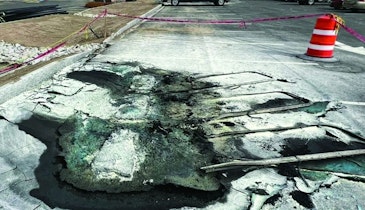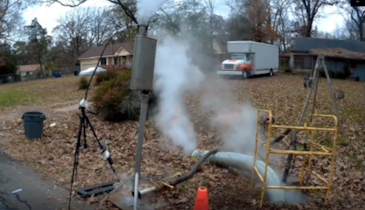Interested in Business?
Get Business articles, news and videos right in your inbox! Sign up now.
Business + Get AlertsI’d wager anyone working in the disaster recovery world has relied on a generator from time to time. Like the power they produce, generators can be taken for granted and their usefulness to us is often not thought of until it isn’t there. The reliability of generators hinges on maintenance. Inadequate upkeep can compromise their functionality, impeding disaster recovery efforts. Therefore, understanding and implementing proper generator maintenance protocols is a big deal.
Proper maintenance not only ensures the longevity of generators but also safeguards against unforeseen breakdowns. It involves a combination of routine inspections, servicing, and adherence to manufacturer guidelines. The biggest thing with any equipment maintenance is to be proactive.
Scheduled Inspections
Regular inspections are the cornerstone of effective maintenance. These inspections should encompass all critical components, including fuel systems, coolant levels, electrical connections, and exhaust systems. By identifying potential issues early on, businesses can preemptively address them, averting costly repairs and downtime.
Fluid Checks and Replacements
From engine oil to coolant and fuel, maintaining proper levels and replacing fluids at recommended intervals is essential. Neglecting fluid maintenance can lead to overheating, corrosion, and mechanical failures.
Load Testing
Load testing involves simulating real-world conditions to assess a generator's capacity and performance. By subjecting generators to varying loads, businesses can ascertain their ability to handle demand during emergencies. Regular load testing not only validates generator functionality but also reveals potential weaknesses that require attention.
Fuel Management
The quality of fuel directly impacts generator performance. Stale or contaminated fuel can clog filters, hinder combustion, and degrade engine components over time. Manage fuel by implementing testing, filtration, and rotation procedures to ensure fuel integrity and longevity.
Environmental Considerations
Generators are often exposed to harsh environmental conditions, which can accelerate wear and deterioration. Implementing protective measures such as enclosures, weatherproofing, and corrosion-resistant coatings can prolong generator lifespan and enhance reliability, especially in disaster-prone areas.
Training and Documentation
Adequate training for maintenance personnel is paramount to ensure compliance with best practices and manufacturer recommendations. Furthermore, maintaining comprehensive documentation of maintenance activities, including schedules, inspection reports, and service records, facilitates accountability and enables data-driven decision-making.
The Cost of Inaction
Operational disruptions, equipment damage, and compromised safety are just a few potential repercussions of maintenance neglect.
Beyond immediate repercussions, the financial ramifications of generator failures can be substantial. Repair costs, replacement expenses, and loss of business continuity can accrue significant losses, tarnishing the reputation and viability of disaster recovery businesses.






